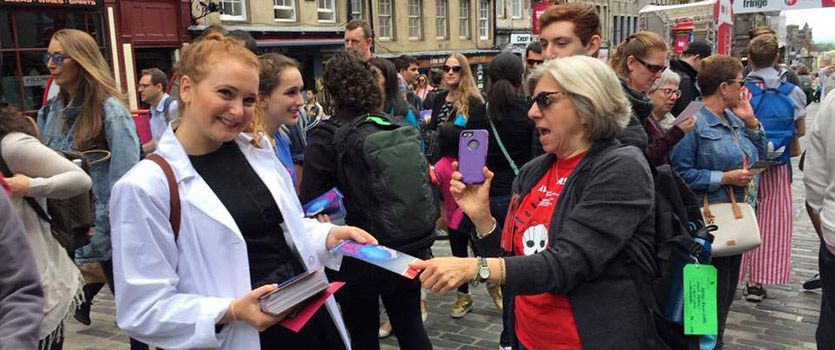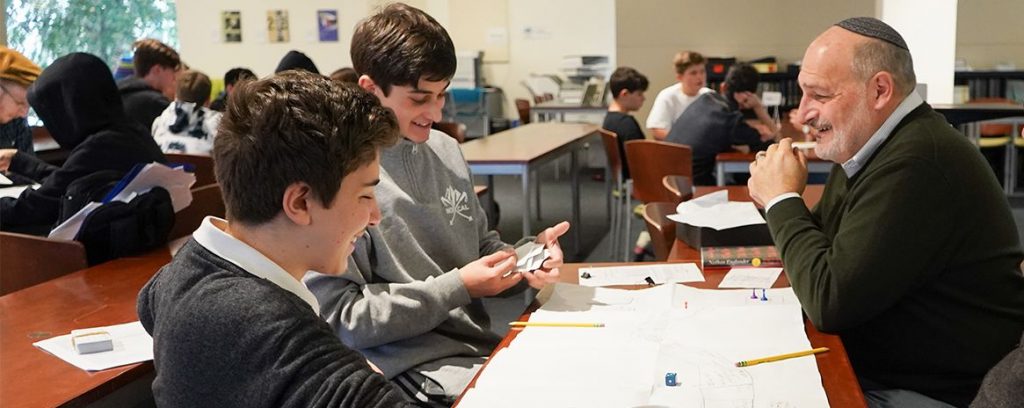by Adi Alouf: Director of Student and Jewish Life, Jewish Studies Teacher
In our JCHS community, people right now are experiencing different types of grief, and different relationships to grief. Beyond our own unique experiences of grief, there are people in our lives who are grieving, too. Israelis are grieving. Palestinians are grieving. There is just so much grief in our world.
This week in the Torah, Abraham and Isaac are grieving, too. When Sarah dies, in the land of Canaan, Abraham proceeds to mourn and bewail her.
This parsha, Chayei Sarah, which translates to “the life of Sarah,” gives us scaffolding for our own grief.
After this initial mourning, Abraham “rises from the face of his dead”: וַיָּ֙קם֙ אַבְרָהָ֔ם מֵעַ֖ל פְּנֵ֣י מֵת֑וֹ. The rabbis understand this to mean that he physically rises from the dead body of his wife in order to attend to her burial arrangements. Perhaps we can also read this verse to mean that Abraham is also rising from his own death in a sense – from the part of him that died along with his wife. The וַיָּ֙קם֙ feels decisive – he suddenly rises up from that particular stage or experience of his grief. He takes the time to sort out the burial arrangements, carefully navigating a transaction with the Hittites and Ephron. Eventually, he buys a plot of land and buries Sarah in a cave at the edge of that land. He lays her to rest, he honors her. He cares for his dead.
Abraham first takes the time to mourn and bewail. And then, at once, he decisively rises up. And he proceeds thoughtfully and carefully to honor his late wife through her burial.
What is his next step? Looking for and pursuing life. Abraham knows exactly what he is looking for. He seeks love, partnership, and generosity in the form of a wife for his son, Isaac. His mind is oriented towards the next generation. Isaac’s wife must be generous, selfless, and kind. And from Abraham’s birthplace. Again, Abraham is decisive. He is looking for something specific. Isaac’s future wife will be the woman who, when you ask her for some water, will not only give you water to drink, but also give water to your camels.
Verses later, Isaac and Rebecca marry. Isaac loves her, and finds comfort in her companionship and love after his mother’s death.
Abraham and Isaac move through their grief by seeking comfort in human connection, in the generosity and kindness of other human beings. Seeking comfort in the actual experience of loving other human beings. And they seek comfort by planning for the future, for the life that is to come after.
Maybe this parsha offers us pathways and guidance in our own grief. Guidance in where to look and what to look for.
In my own grief, I’ve struggled with where to look this past month. Which news outlets and newspapers do I read? To what extent do I want to be looking at social media right now? Do I look at certain devastating, graphic images, videos, and testimonies as a way to bear witness? Can I look away to protect my own sleep? How do I balance the looking at and looking away? It’s been hard for me to look for, and at, voices I disagree with – voices that challenge my own beliefs. Should I be looking for those voices?
May we feel inspired by this parsha to ask ourselves, as we sit in our grief, “Where do I want to look right now? What do I want to look for?”
Abraham and Isaac and Rebecca invite us to open up our hearts and to look at, and for, humanity. In each of our unique experiences of grief, they invite us to look for love and the experiences of loving others. To look for, and pursue, community and generosity. And lastly, our patriarchs and matriarchs model for us the imperative of looking ahead to the next generation. I myself have found such comfort in human connection and community this past month, and feel immensely grateful for, and inspired by, our students.









